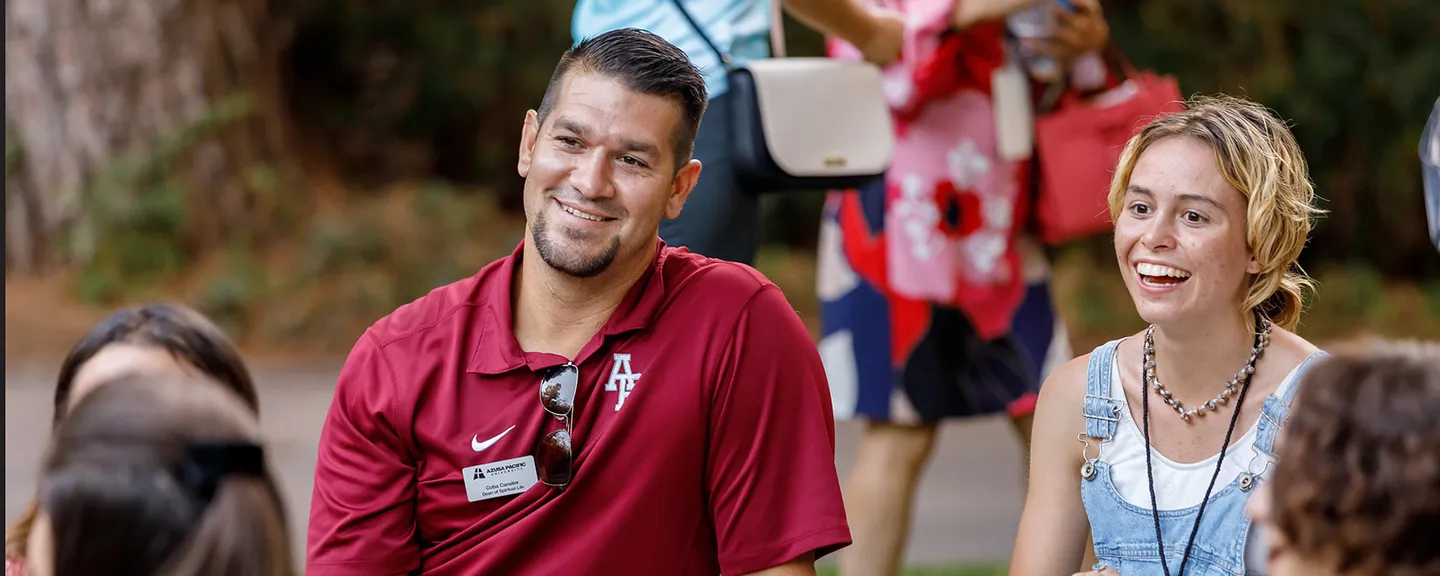- Home
- >
- APU Articles
- >
- News Article
Why Your Student Needs a College Mentor (and How to Find One)
November 16, 2021 | Written By Ben Kissam

Here are some of the ways a college mentor can achieve this and how your student can connect with one at Azusa Pacific University.
Setting Goals
So many adages about success say that modeling, or adopting the behaviors and traits of someone you admire, is key to achieving your goals. Having a college mentor is a great way to model what success looks like for your child.
“A mentoring relationship can be a dynamic and insightful experience for college students who, in this stage of life, are laying the groundwork to identify and pursue their purpose,” said Marie Carasco, PhD, an assistant professor in APU’s School of Business and Management.
A good mentor is more than someone who goes over where your student hopes to be in five years. In many cases, they’ve already accomplished what your student hopes to do and can help specify and direct their trajectory, making outcomes seem far more achievable for your student.
They can also expedite the path to those goals by helping your student match classes and extracurricular activities to their interests, recommending networking experiences, and connecting them to people in their industry.
A Unique Adult Relationship
College certainly changes the parent-child relationship—and a 2020 CollegePulse survey showed that change is often for the better. Of the approximately 14,500 college students surveyed, three out of five said relationships with their parents improved after they went to college.
While nothing can replace a great parent, a good college mentor does offer your child a unique adult relationship that checks many of the boxes you might not be able to from a distance. Furthermore, because their mentor is also meeting them for the first time later in life, they may be able to offer slightly different perspectives and advice. Either way, having another caring adult looking out for your child stands to benefit them in many areas, not just academics.
Social and Spiritual Support
From classes and part-time jobs to extracurricular activities, college is a busy time for students, and it can often take a toll. According to the University of Michigan's 2020 Healthy Minds Study, 47% of college students experienced depression or anxiety, while 83% of those students report an impact on their academic performance of at least one day a week.
A college mentor gives students an additional outlet in their lives for when times get tough—one that can meet them where they are and help them grow socially, emotionally, and spiritually. “As students are learning, as they’re applying themselves, it brings up life questions,” Rev. Kelly Roth, MA said. “Having someone to walk alongside as they’re discovering new things about the world, about themselves can only enhance their spiritual life.”
How to Find a Mentor That Fits
Fortunately, plenty of mentoring options are available for students at APU. Examples include:
- The discipleship mentorship program, which connects students with a mentor for faith and life questions
- The peer-based Auxilium Mentoring Program for first-year Honors students
- Campus Connections, which provides first-generation college students with faculty mentors
Students looking for a mentor can also email [email protected] or call (626) 815-3855 for direction and assistance. Based on their experiences and interests, students will be matched with a mentor, who could be a faculty member, graduate student, alum, or even a local community member. Meetings usually take place once a week from October through April, so reaching out at the beginning of the year is best.
Think your college student could benefit from mentorship? Show them why having a college mentor is key to their success.